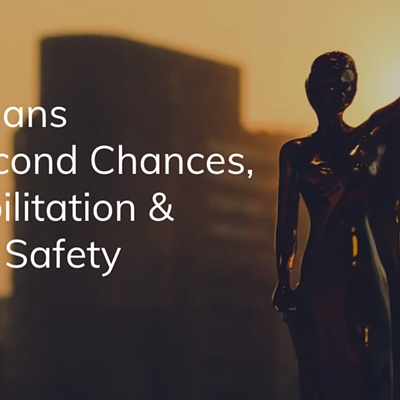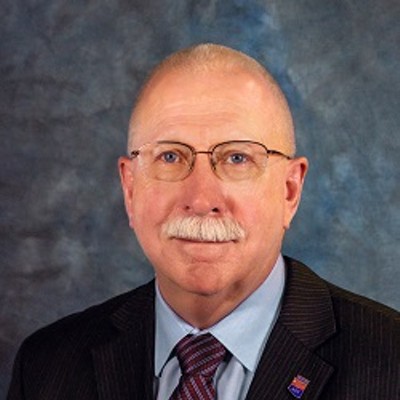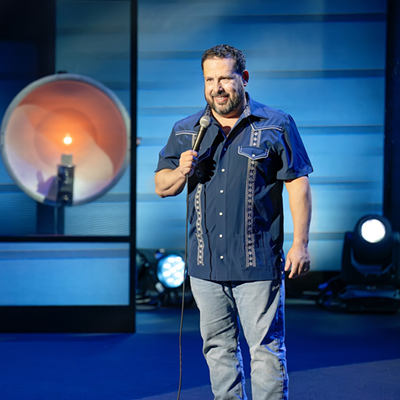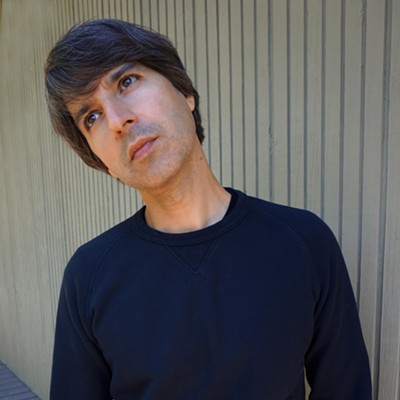Arizona's branch of the American Friends Service Committee has spent the past 33 years working to raise awareness of the state's prison overpopulation problem while also trying to help create alternatives to mass incarceration.
There have been successes and failures over the years, but the mission hasn't changed, AFSC Arizona program director Caroline Isaacs said.
"We're trying to promote sensible alternatives to incarceration," she said.
Work like this takes plenty of manpower, not to mention a good amount of funding to help the Quaker-affiliated nonprofit stay on track. AFSC Arizona does many types of fundraising, including an annual concert, which this year will be held Saturday at the Rialto Theatre.
Justice on Tap features three local bands performing for a $10 cover charge. And while it's to benefit AFSC's efforts, you'll be hard-pressed to find any overt messages about the organization other than an information table.
"It's really all about the music," Isaacs said. "We don't want to depress people with diatribes about how awful things are. We just try to get the most awesome bands we can get, the most variety. Not a lot of talking, just a lot of rocking."
First up is singer/songwriter Cyril Barrett, who will be joined onstage by musicians Thoger Lund and Gabriel Sullivan. They are followed by Carlos Arzate and the Kind Souls, with Chicha Dust closing out the show.
"This year we decided to go for the gusto," Isaacs said of the eighth annual concert. "It started off in a co-worker's backyard. We want to pack the house this time."
The event had previously been called Justicepalooza. Isaacs said AFSC Arizona has tried to spruce things up this year, working with the Rialto to temporarily rename one of the theater's beers on tap for the event. Rialto mixologist Laura Kepner-Adney is also creating a signature cocktail for the show.
Both the beer and cocktail names will come from an online contest AFSC Arizona coordinated through its blog and Facebook page, one of many ways the organization is trying to engage the community without being too in-your-face about issues. That's not to say it doesn't push hard to educate the public, though, Isaacs said.
"I think it can very much be a very out-of-sight, out-of-mind issue," Isaacs said of Arizona's prison overpopulation problems. "But, because our prison population is so high, chances are people know somebody who's been in prison. They know someone who's been in trouble with the law, or had a drug problem."
Even if you don't know someone who's been in the system, the issue still affects you because it's a taxpayer-funded program, Isaacs said. "Like it or not, you're paying for it."
AFSC Arizona isn't about trying to minimize the severity of certain crimes, or trying to abolish laws or ordinances. Rather, the main effort nowadays is to keep first-time or low-level offenders out of prison by getting them into programs that help people with substance-abuse issues and other problems.
"We're doing a lot of work on diversion programs," Isaacs said.
Isaacs said many states have been moving in this direction in the past few years, if for no other reason than shrinking budgets have prompted them to look for ways to cut prison-associated costs.
AFSC Arizona was integral in the passage of HB 2307 by the Arizona Legislature. The bill, signed into law by Gov. Jan Brewer earlier this year, establishes a fund for counties that increase their efforts to establish deferred-prosecution programs. Such programs allow people arrested for certain crimes to go through a treatment program or another form of diversion, with only those who fail to meet the requirements having their cases forwarded to the county attorney's office for prosecution.
"That's particularly important, because a felony conviction can basically bar you from housing and employment for the rest of your life," Isaacs said.
Justice on Tap starts at 6:30 p.m., Saturday, May, 10, at the Rialto Theatre, 318 E. Congress St. Admission is $10. For more info: 623-9141 and afscarizona.org.









